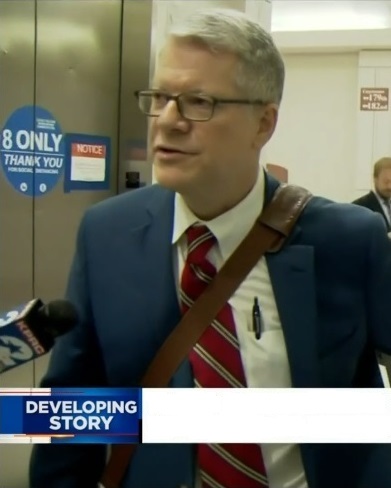 People find themselves in trouble with the law every day. The average person has probably not even read the law that he or she is alleged to have broken. Although it is highly unlikely that the average person would try to offer a bribe to a public servant, public official or even voter, it could happen. For your benefit, the Texas law on Bribery is published below.
People find themselves in trouble with the law every day. The average person has probably not even read the law that he or she is alleged to have broken. Although it is highly unlikely that the average person would try to offer a bribe to a public servant, public official or even voter, it could happen. For your benefit, the Texas law on Bribery is published below.If it did happen, the charge would be a serious felony and it would look really bad on a person’s record. The best advice is to learn the law and just not break it. If a person cannot do that, then he or she should expect at some point in their life’s journey to need the representation of a criminal defense lawyer. If you need a Texas criminal defense attorney, call Jim Sullivan at 281-546-6428.
Sec. 36.02. BRIBERY. (a) A person commits an offense if he intentionally or knowingly offers, confers, or agrees to confer on another, or solicits, accepts, or agrees to accept from another:
(1) any benefit as consideration for the recipient’s decision, opinion, recommendation, vote, or other exercise of discretion as a public servant, party official, or voter;
(2) any benefit as consideration for the recipient’s decision, vote, recommendation, or other exercise of official discretion in a judicial or administrative proceeding;
(3) any benefit as consideration for a violation of a duty imposed by law on a public servant or party official; or
(4) any benefit that is a political contribution as defined by Title 15, Election Code, or that is an expenditure made and reported in accordance with Chapter 305, Government Code, if the benefit was offered, conferred, solicited, accepted, or agreed to pursuant to an express agreement to take or withhold a specific exercise of official discretion if such exercise of official discretion would not have been taken or withheld but for the benefit; notwithstanding any rule of evidence or jury instruction allowing factual inferences in the absence of certain evidence, direct evidence of the express agreement shall be required in any prosecution under this subdivision.
(b) It is no defense to prosecution under this section that a person whom the actor sought to influence was not qualified to act in the desired way whether because he had not yet assumed office or he lacked jurisdiction or for any other reason.
(c) It is no defense to prosecution under this section that the benefit is not offered or conferred or that the benefit is not solicited or accepted until after:
(1) the decision, opinion, recommendation, vote, or other exercise of discretion has occurred; or
(2) the public servant ceases to be a public servant.
(d) It is an exception to the application of Subdivisions (1), (2), and (3) of Subsection (a) that the benefit is a political contribution as defined by Title 15, Election Code, or an expenditure made and reported in accordance with Chapter 305, Government Code.
(e) An offense under this section is a felony of the second degree.

